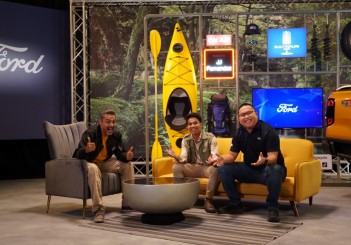WASHINGTON: Ford seeks to develop a sustainable and lightweight material with the world's best selling tequila-maker Jose Cuervo for use in its vehicle line-up.
The collaboration expands the automaker’s portfolio of earth-conscious materials to include the tequila distributor's leftover agave plant fibres.
The agave-derived bio-plastics for parts include wire-harnesses, heating-ventilating-air-conditioning (HVAC) units and storage bins, which are currently undergoing test phases and have so far shown to possess high levels of aesthetic qualities and durability.
Use of this plant-based material could help to decrease vehicular weight, thus lowering fuel consumption, and if the fibres do find a permanent place in Ford's vehicles, there shouldn't be any problems of shortage since Jose Cuervo harvests up to 300 tonnes of agave per day.
Currently, the automaker uses several bio-based materials in its vehicles, while testing many more for future applications that include algae, tomato peel and carbon dioxide.
This helps to improve the carmaker's environmental impact by reducing the use of petrochemicals and reducing carbon emissions while also helping to lighten their vehicles to reduce fossil fuel usage.
Such sustainable materials used by the company include Kenaf (a tropical plant in the cotton family) that's used in the door bolsters of the Ford Escape; Repreve fabric made from recycled plastic bottles (saves five million plastic bottles from landfills annually) used in the F-150 truck.
Other materials also include post-consumer cotton from denim and T-shirts used as interior padding and sound insulation in most Ford vehicles; EcoLon post-consumer nylon carpeting found as cylinder head covers in the Ford Escape, Fusion, Mustang and F-150.
The use of recycled plastic bottles are becoming floor carpeting, wheel liners and shields in several
vehicles including the Ford Transit and C-MAX, furthermore the company has gone to the extent of utilising recycled post-consumer tyres for other seals and gaskets.
The company also uses rice hulls to reinforce plastics in the F-150's electrical harness, while soy-based foams are used as seat cushions, seat backs and head restraints in Ford’s North American vehicle line-up, while wheat straw is used in the Ford Flex to reinforce storage bins.
Lastly, cellulose tree fibres are used in the armrest of the Lincoln MKX - replacing glass-filled plastic. This industry-first material weighs 10%-less and is produced 30% faster.










